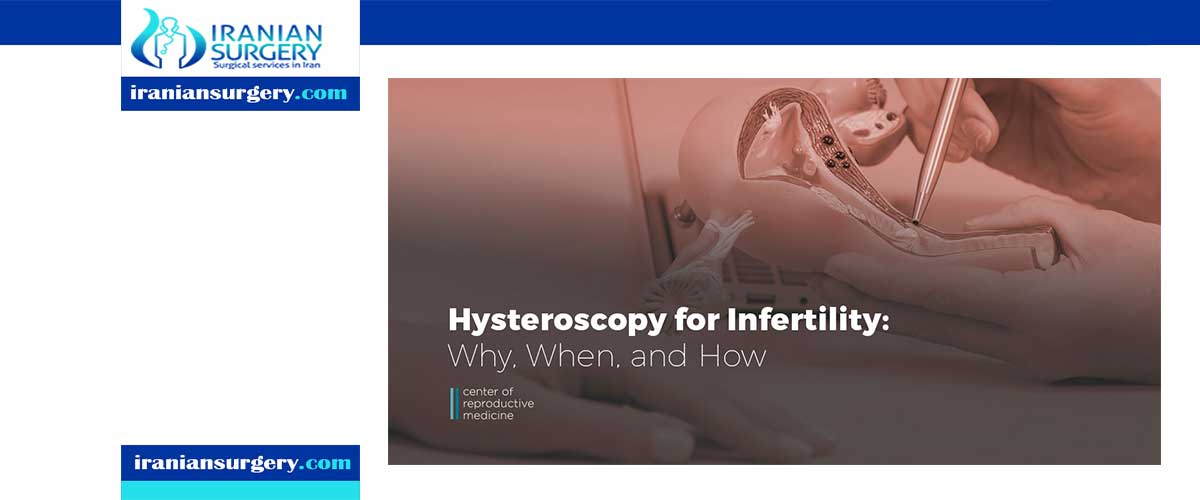Can hysteroscopy cause infertility?

Can hysteroscopy cause infertility?
However, more studies are needed before hysteroscopy can be recommended as a fertility-enhancing procedure, concluded the researchers. Pertinent Points: - Removing polyps and other uterine cavity abnormalities via hysteroscopy in women with unexplained infertility may increase their chances of becoming pregnant.
Contraindications to hysteroscopy include an absolute contraindication for pelvic infection or endometrial cancer, and relative contraindication in the case of pregnancy, excessive bleeding, cardiovascular disease, or severe vaginitis. Complications of hysteroscopy are reported in 1 to 3% of cases.

10 common question
1What are the chances of getting pregnant after hysteroscopy?
If 28% of women become pregnant without surgery, the evidence suggests that about 63% of women will become pregnant following removal of polyps .
2Can polyps stop you from getting pregnant?
Uterine polyps & infertility
Polyps can also create a blockage where the fallopian tube enters the uterine cavity, preventing sperm from finding an egg to fertilize. Polyps can also block the canal of the cervix, directly blocking the uterus. Polyps may also contribute to miscarriages.
3How long after a hysteroscopic myomectomy can I get pregnant?
You may have to wait up to six weeks. If you want to get pregnant, ask your doctor when you can safely start trying. You might need to wait three to six months for your uterus to fully heal depending on which kind of surgery you've had.
4What is the recovery time for a hysteroscopy?
These symptoms usually go away in 1 or 2 days. If the doctor filled your uterus with liquid during the procedure, you may have watery vaginal discharge for a few days. Many women are able to return to work on the day after the procedure. But it depends on what was done during the procedure and the type of work you do.
5Are you more fertile after hysteroscopy?
However, more studies are needed before hysteroscopy can be recommended as a fertility-enhancing procedure, concluded the researchers. Pertinent Points: - Removing polyps and other uterine cavity abnormalities via hysteroscopy in women with unexplained infertility may increase their chances of becoming pregnant.
6Do small polyps affect fertility?
There may be one or several polyps present. Uterine polyps are usually benign (noncancerous), but they may cause problems with menstruation (periods) or fertility (the ability to have children).
7Can you get pregnant with fibroids?
Many women who have fibroids can get pregnant naturally. Treatment may not even be necessary for conception. In some cases, however, fibroids can impact your fertility. ... While fibroids may cause infertility for some women, other explanations for infertility are more common.
8Can fibroids affect fertility?
Can fibroids decrease fertility? ... Their size and location determines whether fibroids affect fertility. Examples include fibroids that are inside the uterine cavity (submucosal) or very large (>6 cm in diameter) within the wall of the uterus (intramural). Most women with fibroids will not be infertile.
9Is polyps and PCOS the same?
Polyps more commonly occur in older women, however, young women of reproductive age may also have them. ... Women with irregular menstrual cycles appear more prone to get them, especially those with polycystic ovarian syndrome (PCOS) and obesity due to the elevated estrogens associated with these conditions.
10Is it possible to get pregnant after myomectomy?
When trying to get pregnant after myomectomy.
Because fibroids can grow back, it is best to try to conceive as soon after a myomectomy as is safely possible and your recovery from surgery is complete. When incisions have been made into the uterine wall to remove fibroids, future pregnancy may be affected.
[kkstarratings]

